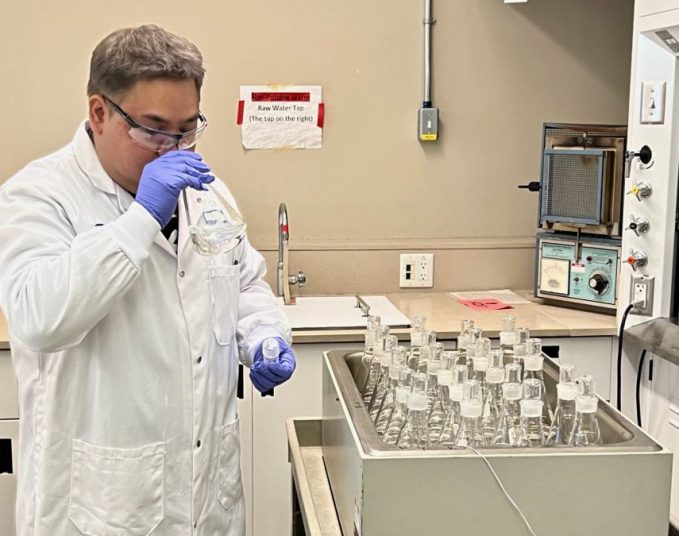“Hello?”
“Are you Sarah Connor?”
“Yes. Have you been sent back in time by an artificial intelligence to kill me?”
“No, not exactly. I’m actually here to tell you that I’ve come up with a way to better collect the garbage from your neighbourhood.”
“Oh, so you’re not here to kill me?”
“No, just to fix stuff.”
According to a recent McGill University study, Edmonton is best amongst 28 Canadian cities when it comes to using artificial intelligence to help make our public services more efficient.
And that’s music to the ears to Kris Andreychuk, the City’s manager of data science and research.
“Not a lot of attention is being paid to what the public service is doing with AI,” Andreychuk says.
“When you can’t do more with more, you have to do different with different.”
The McGill study states that Edmonton “has the most in-house AI capacity among all municipalities in this study, staffs a data science team consisting of a project manager, three data scientists, a data storyteller, a data architect and a strategic foresight analyst.”
Since then, the number has swelled to four permanent data scientists and an added data science co-op student.
Andreychuk says that when we think of AI in Edmonton, we might jump to big think tanks like Amii, or what private industries are doing with the technology. But Andreychuk says he and his team are looking at ways AI can help the city better deliver services, and that can range from policing to garbage pickup. As the city wrestles with inflation and the need to chop hundreds of millions from the budget, any efficiency it can find is badly needed.
In order for Andreychuk’s team to be able to find efficiencies, four conditions need to be met, what he calls the “secret sauce.”
First, you need a well-defined problem. You need to drill down to what’s really needed. If you want the buses to run on time, think about what it is that causes the buses to fall behind their schedules. Is there a specific area of town that causes more traffic problems than most? Like Deep Thought in The Hitchhiker’s Guide to the Galaxy (the fictional supercomputer that determined the meaning to life, the universe and everything was 42… and then found that the query itself was flawed, so another computer had to be built to come up with a better question), the AI is only is as good as the question that’s asked.
The second thing is a willing partner within the City who is open to the solutions suggested. “We are not about validating assumptions,” says Andreychuk.
The third thing is the need for clarity on what will change. It’s not just about using AI to find a solution or a more efficient way of doing things; it’s about making sure the plan goes forward.
And the fourth thing is “the level of comfortability with how unpredictable it is,” says Andreychuk. And that goes back to the whole idea of being open about the process.
Why is AI so important? The City is already looking at an almost $500 million hole in the infrastructure budget for this year alone. Inflation is rising quickly, and tax hikes are simply covering the rise in how much things cost.
“A lot of the decisions the City has to make are about what to prioritize,” says Andreychuk. And AI — along with the four-step secret sauce — can help with that.
Savvy AF. Blunt AF. Edmonton AF.




